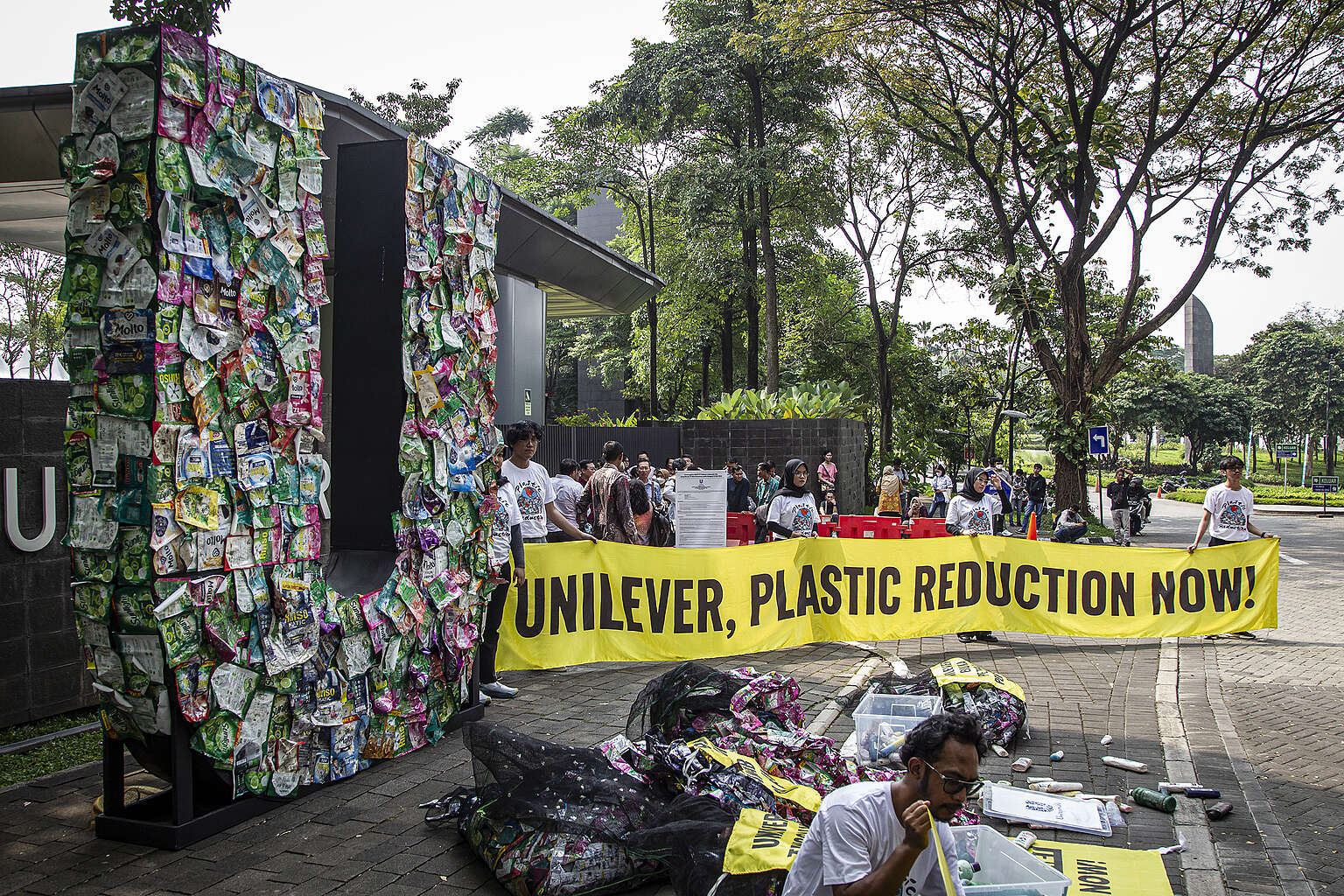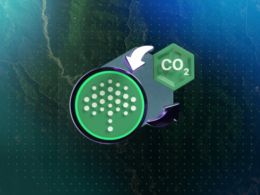Greenpeace Indonesia and the Zero Waste Indonesia Alliance (AZWI) staged a protest during the Unilever Annual General Meeting (AGM) in Serpong, Banten, urging the company and its shareholders to cease using plastic waste, particularly sachet packaging, which is the leading polluter in rivers and seas.
Greenpeace activists returned 1,851 pieces of Unilever-branded plastic waste to the company’s Indonesian headquarters in a dramatic demonstration of corporate accountability. The protest featured the waste arranged into a giant ‘U’ logo in front of Unilever’s office in Green Office Park, BSD City, Tangerang. This act culminated a week-long campaign by the environmental group to highlight Unilever’s substantial plastic footprint.
Unilever, a leading Fast-Moving Consumer Goods (FMCG) company, has been identified as a top plastic polluter in recent Brand Audit reports. A recent audit in Southeast Asia, including Indonesia, found Unilever to be the leading polluter with 1,851 single-use plastic packages. The company plans to produce 53 billion sachets this year, or 1,700 per second, despite scaling back its commitment to reduce virgin plastic use by 50% by 2025 to a 30% reduction by 2026. “It’s time to hold Unilever accountable as one of the world’s largest FMCG producers, to seriously pursue their plastic reduction commitments, and urge them to disclose their waste reduction roadmap,” said Ibar Akbar, Plastic Project Lead at Greenpeace Indonesia.
The protest highlights the gap between Unilever’s ‘waste-free world’ goal and the reality that 99.8% of its plastic packaging is single-use. With Indonesia’s Regulation No. 75 of 2019 mandating a 30% reduction in packaging waste, progress has been slow. In Southeast Asia, sachet consumption is projected to reach 1.3 trillion annually by 2027. Environmental activists urge stronger commitments and transparency in waste reduction, emphasising the need for a global plastics treaty to shift from single-use plastics to reusable systems.






















